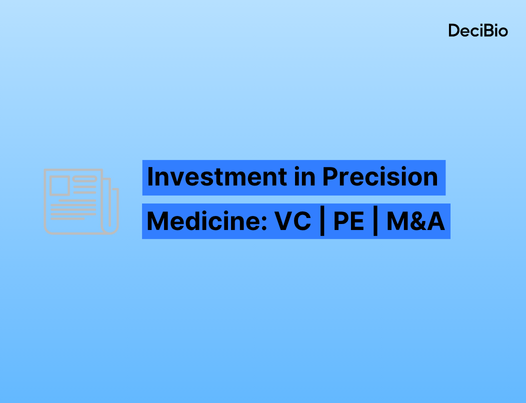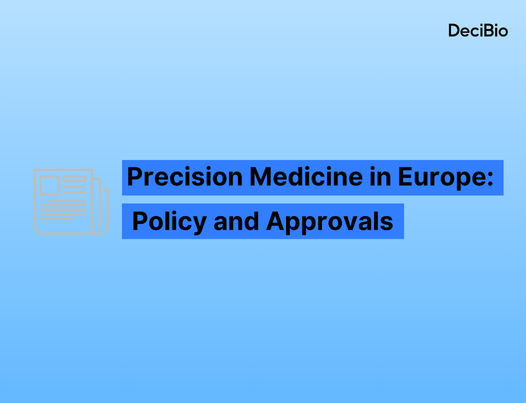Highlights & Summary
In March 2025, AI continued to advance drug discovery, diagnostics, and healthcare. Stanford researchers identified new peptide hormone targets for obesity using AI, while Google released its open-source TxGemma model to support broader therapeutic development, and Insilico Medicine raised $110M in Series E funding to expand its drug pipeline. AI-powered wearables from The Chinese University of Hong Kong and new lung disease software are enhancing diagnostic accuracy, with Wysa’s acquisition of April Health adding a full suite of AI-driven mental health tools. In healthcare, AI is accelerating MRI access, improving hospital and ER efficiency, and speeding up clinical trial data analysis.
AI in Drug Discovery
1 | Prohormone Cleavage Prediction Uncovers a Non-Incretin Anti-Obesity Peptide | New Research
2 | Insilico Medicine Scores $110M for AI-Enabled Drug Discovery | Financing
3 | Google Introduces TxGemma: Open Models to Improve Therapeutics Development | Commercial
AI in Diagnostics
1 | CUHK Develops the First AI Blood Pressure Management System Integrated with DeepSeek | Commercial
2 | Coreline Soft Poised to Dominate Global AI Market with Strategic Investment from VUNO | Partnership
3 | Wysa Merges with April Health to Combine AI and In-Person Mental Healthcare | M&A
AI in Healthcare
1 | Hyperfine and NVIDIA Collaborate to Revolutionize Neuroimaging with AI-Powered Innovation | Partnership
2 | Connecticut Children’s and Xerox Partner to Introduce New, Innovative, AI-driven Technologies to Pediatric Healthcare | Partnership
3 | The American Cancer Society and Layer Health to Accelerate Data Abstraction for Cancer Research | Partnership
AI in Drug Discovery
1 | Prohormone Cleavage Prediction Uncovers a Non-Incretin Anti-Obesity Peptide | New Research
Scientists at the Stanford School of Medicine have employed computational drug discovery techniques to characterize over 2,600 peptide hormones, leading to the identification of a potentially useful molecule that may modulate body weight. Prohormone convertase 1/3 plays a critical enzymatic role in producing therapeutic peptide hormones, such as GLP-1, though the breadth of other peptide hormone products (and their functionality) is largely unknown. Computational mapping (via Peptide Predictor, a custom in-house algorithm) of these peptide hormone products has uncovered a 12-mer called “BRINP2-related peptide” (BRP); in animal studies, BRP administration has been shown to reduce food intake and exhibit anti-obesity effects.
2 | Insilico Medicine Scores $110M for AI-Enabled Drug Discovery | Financing
Insilico Medicine, a Massachusetts-based AI-driven biotech company, secured $110M in an oversubscribed Series E, backed by Value Partners Group and other new / existing investors. Insilico will use the funding to further its pipeline development (which comprises 31 programs) and continue to hone its AI platform. Pharma.AI, Incilico’s proprietary platform, leverages biology, clinical medicine, research, and generative chemistry to support its drug discovery efforts. The recent funding may help facilitate collaboration across the industry, driving incorporation of Insilico’s Pharma.AI platform across the sector.
3 | Google Introduces TxGemma: Open Models to Improve Therapeutics Development | Commercial
Google recently released TxGemma, a series of open models designed to improve therapeutic development efficiency using LLMs. The platform is built to offer end-to-end support in therapeutic development, from the initial discovery processes to trial outcome prediction. TxGemma may offer increased process efficiency, potentially shortening development timelines and reducing costs. TxGemma is available in three sizes, where the larger versions offer a “chat” function, allowing users to ask the model to explain its reasoning.
AI in Diagnostics
1 | CUHK Develops the First AI Blood Pressure Management System Integrated with DeepSeek | Commercial
A research team within the Department of Electrical Engineering at The Chinese University of Hong Kong has developed a blood pressure monitoring wearable that incorporates DeepSeek, making it the first AI wearable integrating the LLM. The system, called Dr. PAI for “Personalized AI Doctor,” enables continuous monitoring of dynamic blood pressure changes and heart rate variability. The wearable uses multimodal data to conduct comprehensive analyses, offering more accurate assessments to users / healthcare providers, as compared to traditional devices.
2 | Coreline Soft Poised to Dominate Global AI Market with Strategic Investment from VUNO | Partnership
VUNO, a medical AI company based in Korea, has invested $2.3M USD in Coreline Soft and plans to transfer the rights to its AI-powered lung disease diagnostic software; the two companies recently entered into a strategic partnership. Coreline Soft will use the funds to expand its offerings in the Japanese medical AI market, leveraging its newly-acquired VUNO Med-LungCT solution and VUNO’s local network. VUNO will continue to participate as a strategic investor focused on preventative medical AI.
3 | Wysa Merges with April Health to Combine AI and In-Person Mental Healthcare | M&A
Wysa, an AI-backed mental health chatbot company, recently acquired San Francisco-based April Health, a behavioral health company that integrates virtual mental health services into primary care. Wysa’s platform provides users with guided meditations, breathing exercises, and cognitive behavioral therapy sessions, whereas April Health offers telehealth psychiatry and other behavioral services via primary care providers; the combined platform will offer a suite of comprehensive mental health services. The collaborative care model between Wysa and April Health may decrease the cost of care, with the acquisition potentially allowing Wysa to overcome reimbursement challenges by utilizing April Health’s provider and insurance network.
AI in Healthcare
1 | Hyperfine and NVIDIA Collaborate to Revolutionize Neuroimaging with AI-Powered Innovation | Partnership
Hyperfine, a health tech company that built the first FDA-cleared portable MRI, and NVIDIA are collaborating to advance AI-powered image generation and to integrate real-time clinical decision making into Hyperfine’s neuroimaging platform. The collaboration will aim to make their MRI system faster, smarter, and more affordable by leveraging NVIDIA’s AI expertise and computing power. Hyperfine’s technology, the Swoop system, has the potential to transform diagnostic / treatment paradigms surrounding brain diseases where traditional MRI infrastructure may be lacking given Swoop’s point of care accessibility. NVIDIA will contribute training and inference tools, such as DALI and MONAI, to improve the Swoop system’s image quality, scan times, and diagnostic reliability.
2 | Connecticut Children’s and Xerox Partner to Introduce New, Innovative, AI-driven Technologies to Pediatric Healthcare | Partnership
Connecticut Children’s, a Hartford-based pediatric health system, is expanding its partnership with Xerox to incorporate AI-powered offerings to increase emergency department efficiency, predict cardiotoxicity risk, and advance census forecasting. In the emergency department, AI recommendations will recommend supplies and medications for common emergency procedures leveraging comparable past cases. AI-driven cardiotoxicity risk prediction in pediatric oncology may allow identification of at-risk patients earlier on, potentially improving outcomes. Census forecasting will better estimate anticipated patient volumes, resources to be allocated, and cost efficiencies.
3 | The American Cancer Society and Layer Health to Accelerate Data Abstraction for Cancer Research | Partnership
The American Cancer Society (ACS) and Layer Health, an AI-driven health tech company, have partnered to accelerate cancer research. Layer Health will utilize its LLM-driven data abstraction platform to reference clinical data from patients enrolled in ACS studies and conduct longitudinal analyses. Layer’s LLM aims to abstract high-quality, real world data to answer complex clinical questions with direct evidence from medical records. This collaboration will build on a prior partnership involving breast cancer patients, whereby ACS was able to use Layer Health’s LLM to distill complex concepts from patient records with better accuracy than humans.

.png)







.png)

.png)


